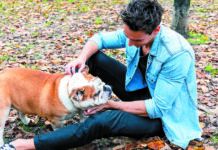Tufts Animal Behavior Clinic Head Dr. Stephanie Borns-Weil makes very clear that in general, adding a new dog to a dog’s home life is an improvement in quality of life for the first pet. It’s not that remaining a one-dog household is “bad.” It is always a good thing to give any dog, even if it’s an only dog, a loving home where it’s well cared for, and no one should feel guilty for not taking in a second canine pet if that doesn’t work for them. But the doctor feels strongly enough about dogs needing canine companionship that she says those who choose to remain a one-dog household should consider doggie day care so their pet can run with their own kind — or at least make sure they frequent dog-friendly parks where there are other dogs around to cavort in ways that only dogs can.
That said, she points to some situations in which bringing a second dog onto the scene will not help an already owned dog. One of them involves a first dog who is fearful and perhaps aggressive with respect to unfamiliar dogs. “Such a dog may make an exception for the new dog in the household,” she says. “She won’t go looking for unnecessary trouble. But it’s an unrealistic expectation that sheer exposure to a second dog in the home is going to teach the first one appropriate behavior in all situations or that the first dog can learn from the new one.” Fear aggression toward dogs (and people) has to be dealt with in a step-by-step fashion over time, the doctor says. It won’t happen because you force a new dog onto a scared, anxious one.
Likewise, she says, getting a second dog will not help a dog who suffers from separation anxiety when his human family members leave the house. In fact, she comments, it could worsen the situation. “If, when you go out to work, your first dog falls apart — becoming destructive and vocalizing and eliminating in the house — the new dog might start developing difficult behaviors as well. It could be very stressful for a new dog in your home to have to contend with these extreme behaviors, and he might start acting out, too.”
Another behavioral issue for which getting a second dog will not prove a solution: resource guarding. “If your existing dog is a resource guarder who growls when other people or dogs go near his food bowl or toys, that behavior is likely to occur with another dog in the house,” Dr. Borns-Weil warns. It’s not that you absolutely shouldn’t get a second dog because the first guards resources so tenaciously. It’s that the two dogs will have to be fed in separate areas, and their highly valued toys and other things will have to be picked up rather than left around to potentially be the source of trouble. You also want to make sure if you already have a resource-guarding dog that you don’t bring a second resource-guarder into the home. That simply leaves too much room for unhappy circumstances, setting up the two dogs for failure.
The bottom line: “you don’t get a second dog to fix a problem,” Dr. Borns-Weil says. “You get it to enrich both dogs’ lives.”




